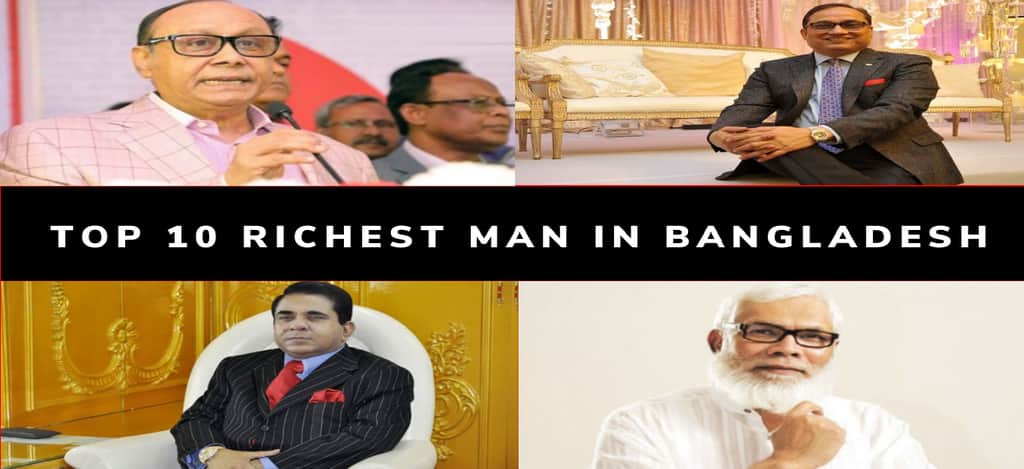Top 10 NGO in Bangladesh

Are you looking for the Top 10 NGO in Bangladesh? Bangladesh is home to numerous non-governmental organizations (NGOs) that play a critical role in addressing social, economic, and environmental challenges. These NGOs focus on diverse areas, including poverty alleviation, education, healthcare, women’s empowerment, human rights, and climate change resilience. The Top 10 NGOs in Bangladesh are widely recognized for their impactful programs, community-driven approaches, and contributions to sustainable development. Leading organizations like BRAC, Grameen Bank, and Ain o Salish Kendra (ASK) are not only transforming lives locally but also gaining global recognition for their innovative solutions to some of the most pressing issues faced by marginalized communities.
1. BRAC
BRAC (Bangladesh Rural Advancement Committee) is one of the largest and most influential non-governmental organizations (NGOs) in the world, founded in 1972 by Sir Fazle Hasan Abed. BRAC has been pivotal in Bangladesh’s development, working across various sectors such as:
- Poverty alleviation
- Microfinance
- Education
- Healthcare
- Women empowerment
- Agriculture
- Social justice
BRAC operates internationally in multiple countries, using a holistic development approach aimed at creating opportunities for people living in poverty to realize their potential. It is well-known for its microcredit program, which supports millions of small entrepreneurs, especially women. Its education programs, healthcare initiatives, and disaster management services have also had a significant impact. So, it is in 1st position in the ranking of Top 10 NGO in Bangladesh.
2. Grameen Bank
Grameen Bank, founded in 1983 by Professor Muhammad Yunus, is a pioneering institution in the field of microfinance. The bank was established with the primary goal of providing small loans, known as microcredit, to poor and rural populations in Bangladesh who lacked access to traditional banking services.
Key points about Grameen Bank:
- Target group: The bank primarily focuses on providing loans to poor individuals, especially women, without requiring any collateral.
- Nobel Prize: In 2006, both Grameen Bank and its founder, Muhammad Yunus, were awarded the Nobel Peace Prize for their efforts to combat poverty and empower communities through microcredit.
- Microfinance model: The Grameen model has been replicated worldwide and has become a blueprint for many other microfinance institutions.
Grameen Bank’s innovative approach has helped millions of people, particularly women, to start small businesses, improve their living conditions, and break the cycle of poverty. So, it is in 2nd position in the list of Top 10 NGO in Bangladesh.
3. ASA (Association for Social Advancement)
ASA (Association for Social Advancement) is one of the largest and most successful microfinance institutions in Bangladesh, founded in 1978 by Md. Shafiqual Haque Choudhury. ASA is known for its highly efficient and sustainable microfinance model, focusing on providing financial services to low-income individuals and entrepreneurs.
Key highlights of ASA:
- Microfinance: ASA provides small loans to help the poor, especially women, start or expand small businesses.
- Self-reliance model: Unlike many other microfinance institutions, ASA follows a self-sufficient model, where it operates with low operational costs and does not rely on donor funding.
- Global reach: Over time, ASA’s microfinance model has been replicated in several countries around the world, making it a globally recognized name in the field of microfinance.
ASA is recognized for its simple, cost-effective, and sustainable approach to microcredit, which has significantly contributed to poverty alleviation in Bangladesh and beyond. So, it is in 3rd position among the Top 10 NGO in Bangladesh.
4. Bishwo Shahitto Kendro
Bishwo Shahitto Kendro (World Literature Centre) is a prominent Bangladeshi non-governmental organization founded in 1978 by Professor Abdullah Abu Sayeed. The organization is dedicated to promoting education, literature, and reading habits among students and the general population.
Key aspects of Bishwo Shahitto Kendro:
- Book reading programs: The organization runs extensive reading programs in schools, aiming to foster a love for books and critical thinking in students.
- Mobile libraries: To reach wider communities, Bishwo Shahitto Kendro operates mobile libraries, bringing books to people in remote and urban areas.
- Cultural and intellectual development: The NGO also focuses on nurturing intellectual growth through seminars, discussions, and cultural events.
Bishwo Shahitto Kendro’s mission is to create a knowledge-based, enlightened society by encouraging reading and the exploration of literature and knowledge, especially among the younger generation. So, it is in 4th position in the ranking of Top 10 NGO in Bangladesh.
5. Nijera Kori
Nijera Kori, founded in 1979, is a prominent rights-based NGO in Bangladesh that focuses on the empowerment of the rural poor and landless communities. The organization’s name translates to “We Do It Ourselves,” reflecting its philosophy of fostering self-reliance and collective action.
Key aspects of Nijera Kori:
- Advocacy for rights: It works to empower marginalized communities, helping them understand and claim their rights, particularly regarding land, labor, and social justice.
- Organizing the poor: Instead of providing microfinance or handouts, Nijera Kori encourages poor communities to organize themselves into groups and take collective action to address issues like inequality, discrimination, and poverty.
- Gender equality: A significant focus is on women’s empowerment, addressing gender-based violence, and promoting women’s participation in decision-making.
Nijera Kori takes a grassroots approach, promoting self-advocacy, social mobilization, and collective rights-based action to bring about sustainable social change for Bangladesh’s most disadvantaged groups. So, it is in 5th position in the list of Top 10 NGO in Bangladesh.
6. Jagorani Chakra Foundation (JCF)
Jagorani Chakra Foundation (JCF) is a well-established NGO in Bangladesh, founded in 1976. It focuses on social and economic development, particularly for marginalized and vulnerable communities.
Key areas of JCF’s work:
- Education: Provides educational programs for underprivileged children, including formal and non-formal education.
- Microfinance: Offers microfinance services to low-income families to help them engage in income-generating activities.
- Health and sanitation: Works on improving healthcare services and promoting sanitation in rural and disadvantaged areas.
- Women’s empowerment: Supports women’s rights, providing vocational training, and helping women become financially independent.
JCF’s holistic approach to development covers multiple sectors, aiming to uplift disadvantaged communities by focusing on poverty alleviation, education, and empowerment. So, it is in 6th position among the Top 10 NGO in Bangladesh.
7. Manusher Jonno Foundation (MJF)
Manusher Jonno Foundation (MJF) is a prominent non-governmental organization (NGO) in Bangladesh, dedicated to promoting human rights, good governance, and social justice, with a particular focus on marginalized and vulnerable populations. Established in 2002, MJF works through a network of grassroots partner organizations across the country to implement its programs and advocacy efforts.
Key Focus Areas:
Human Rights and Social Justice: MJF emphasizes the protection and promotion of human rights, especially for marginalized groups such as women, children, ethnic minorities, and people with disabilities.
Gender Equality: A significant portion of MJF’s work involves advocating for gender equality and combating gender-based violence, with programs aimed at empowering women and addressing issues like domestic violence, early marriage, and sexual harassment.
Good Governance and Accountability: MJF promotes democratic practices and accountability in governance through its programs. It works to strengthen local government institutions, promote transparency, and encourage civic participation.
Child Rights: MJF advocates for the rights of children, focusing on protecting them from exploitation, abuse, and neglect. This includes programs aimed at improving education access and preventing child labor.
Livelihoods and Social Security: MJF supports initiatives that enhance the livelihoods of disadvantaged communities, helping them gain access to resources and opportunities for economic growth. This includes promoting rights to land, access to social safety nets, and ensuring food security.
Climate Change and Disaster Resilience: In recent years, MJF has also been involved in addressing climate change impacts, especially on vulnerable communities. They promote resilience-building strategies for communities affected by natural disasters.
Approach and Methodology:
MJF primarily works through partner organizations at the local level, helping them build capacity and implement various human rights and development programs. The foundation acts as a bridge between local organizations and national/international donors, ensuring that the initiatives are community-driven and locally relevant.
Achievements:
Over the years, MJF has gained recognition for its efforts in promoting human rights and social justice in Bangladesh. Its work has led to significant changes in government policies and societal attitudes towards marginalized groups, gender equality, and good governance.
Key Programs:
Some of the flagship programs of MJF include:
- SHARIQUE Project: Focuses on strengthening local governance and promoting community engagement in decision-making.
- Strengthening Civil Society Organizations (CSOs): MJF provides capacity-building support to CSOs working in human rights advocacy and development.
- Promoting Gender Equality and Reducing Violence Against Women: A key initiative aiming to reduce gender-based violence and improve women’s access to justice.
Overall, MJF has established itself as a key player in the development and human rights sector in Bangladesh, contributing to positive societal change and advocating for the rights of marginalized communities. So, it is in 7th position in the ranking of Top 10 NGO in Bangladesh.
8. Friendship
Friendship is a renowned non-governmental organization (NGO) based in Bangladesh, known for providing essential services to some of the most remote and underserved communities in the country, particularly in riverine and coastal areas. Founded in 2002 by Runa Khan, Friendship is unique in its approach to delivering healthcare, education, and other vital services to areas that are difficult to reach due to geographic isolation and extreme vulnerability to climate change.
Vision and Mission:
Vision: A world where people, especially the most vulnerable, live with dignity and have equal opportunities.
Mission: To help individuals and communities live with dignity by addressing their fundamental needs, enabling them to achieve their potential, and reducing vulnerabilities.
Key Projects:
- Friendship Floating Hospitals: A fleet of hospitals that bring critical healthcare to isolated river communities.
- Friendship Integrated Community Development: A model that combines healthcare, education, climate resilience, and economic development for holistic growth.
- Weaving Centers and Fair Trade: Empowering women through weaving and fair trade initiatives, ensuring they have a sustainable source of income.
Achievements:
Friendship has been recognized both nationally and internationally for its innovative and impactful work, especially in the areas of healthcare and climate change. Its floating hospitals have become a model for delivering healthcare to hard-to-reach areas, inspiring similar initiatives elsewhere.
Founder:
Runa Khan, the founder of Friendship, is an acclaimed social entrepreneur, recognized for her innovative solutions to complex social and environmental challenges. She has received several prestigious awards for her work, including the Rolex Award for Enterprise. So, it is in 8th position in the list of Top 10 NGO in Bangladesh.
9. UCEP Bangladesh
UCEP Bangladesh (Underprivileged Children’s Educational Programs Bangladesh) is a leading non-governmental organization dedicated to providing education, skills development, and employment opportunities to underprivileged and working children, as well as disadvantaged youth, in Bangladesh. Established in 1972 by Lindsay Allan Cheyne, UCEP Bangladesh aims to break the cycle of poverty by offering integrated educational and vocational training programs.
Vision and Mission:
Vision: A society where children and youth, particularly from disadvantaged backgrounds, have access to quality education and decent employment opportunities, enabling them to lead dignified lives.
Mission: To uplift underprivileged children and youth by providing them with education, technical and vocational skills, and linking them to the labor market, thereby ensuring sustainable livelihoods.
Key Programs and Projects:
- Non-formal Education Centers: These centers provide fast-track education to underprivileged children to help them transition to formal schooling or technical training.
- Technical Schools and Institutes: UCEP runs technical and vocational institutes offering skills training in areas like engineering, electrical works, ICT, and more.
- Job Placement Services: UCEP actively connects its graduates with employers, ensuring a seamless transition from training to employment.
- Girls’ Education and Skills Training: Programs aimed at promoting gender equality and empowering women and girls through education and technical training.
Founder – Lindsay Allan Cheyne:
UCEP Bangladesh was founded by Lindsay Allan Cheyne, a social worker from New Zealand. His vision was to address the educational needs of working children and provide them with vocational training to improve their life chances. His legacy continues through UCEP’s impactful programs that benefit thousands of children and youth each year. So, it is in 9th position among the Top 10 NGO in Bangladesh.
10. Ain o Salish Kendra (ASK)
Ain o Salish Kendra (ASK) is a prominent legal aid and human rights organization in Bangladesh, dedicated to promoting and protecting human rights, particularly the rights of marginalized and vulnerable communities. Established in 1986, ASK provides legal assistance, engages in advocacy, and works to strengthen access to justice and accountability through a rights-based approach. ASK is one of the most well-established NGOs in Bangladesh that focuses on human rights advocacy, with a strong emphasis on women, children, workers, and minority groups.
Vision and Mission:
Vision: A just and equitable society where the rights of all individuals are upheld and protected.
Mission: To promote human rights, social justice, and equality by providing legal support, advocating for reforms, raising awareness, and building capacity at various levels of society.
Key Programs and Activities:
Human Rights Monitoring and Documentation: ASK is known for its extensive documentation of human rights violations in Bangladesh, including cases of extrajudicial killings, disappearances, and torture. These reports are used as advocacy tools to press for accountability and reform.
Legal Aid and Counseling Services: ASK operates legal aid centers across the country, offering free legal representation and counseling to disadvantaged individuals. The organization also has a focus on alternative dispute resolution (ADR) methods such as mediation.
Training and Capacity Building: ASK conducts capacity-building programs for legal professionals, human rights defenders, and community leaders to enhance their understanding of human rights and legal frameworks. These trainings are aimed at creating a larger network of advocates for human rights across Bangladesh.
Public Awareness and Campaigns: ASK engages in public awareness campaigns to educate citizens about their rights and how to access justice. The organization uses various platforms, including media, workshops, and seminars, to spread awareness about issues like violence against women, child rights, and labor rights.
Collaboration with National and International Bodies: ASK works closely with national human rights organizations, government agencies, and international bodies such as the United Nations to advocate for stronger protections of human rights in Bangladesh. So, it is in 10th position in the ranking of Top 10 NGO in Bangladesh.
Related Articles:
1. Top 30 Food in Bangladesh
2. Top 10 Hotels in Bangladesh
3. Beautiful Place in Bangladesh
4. Top 10 Richest Man in Bangladesh
5. Top 10 ISP in Bangladesh
6. Top 10 Banks in Bangladesh
7. Top 10 Restaurants in Chittagong
8. Doctors in Chittagong
9. Top 10 E-commerce Websites in Bangladesh
10. Top 10 Universities in the World




